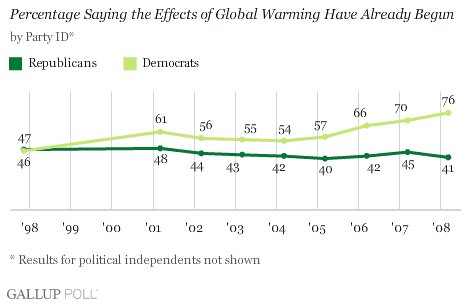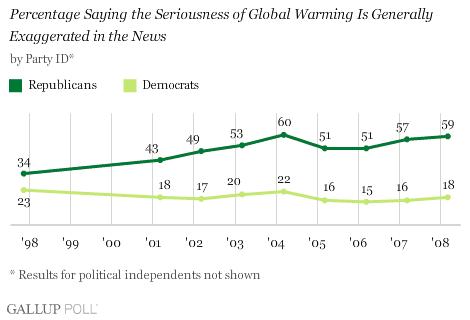I did a complete overhaul of my blog post, as I wasn’t happy with the message it portrayed, and quite honestly it was quickly and hastily thrown together. I tried to attack the issue from a different angle, trying my best to remain objective. Instead of focusing on specific strategies and – for lack of a better phrase – ‘mindgames’ that individual stations use, I tried to show the effect it could have in the political sphere. Enjoy!
It’s no wonder that in the day and age that we live in, where we are bombarded with information every minute of our lives, clashing opinions and viewpoints can confuse and make us apathetic about a number of topics. The recent debate over the condition and future of our planet has experts from all sides presenting us with the ‘facts’ of the case, and how we should go about dealing with such an issue.
It is important to realize that a news station’s best interest might not always be presenting the truth objectively and clearly. The sensationalizing of issues can make a story more interesting to the viewership, but can distort and sway opinions in a very detrimental way. For this reason it is should always be important to ask yourself, who is telling me this and why? This is not to say that the news cannot be trusted, but remaining skeptical and asking questions can be beneficial to creating a well-informed opinion on a wealth of issues.
Regarding the issue of climate change and what we can do about it, a clear distinction can be made, (especially with American stations), on which news stations downplay the seriousness and which hold a position more agreeable to the one taught in class. This split can be distinctly traced along political lines. It is understood at least to me that Fox News holds a bias for the right and conservative viewership of North America, while MSNBC’s viewership is majorly left. (sidenote: I’m making a point of including Canada in the station’s range of influence, as with anything from our Southern neighbours). Historically environmental support has been largely non-partisan, however recent polls have shown that the gap between left and right has expanded dramatically.


This is significant because if stations want to keep their viewership, they’d better pander to their bias. Watch below as these two sides discuss the issue of ‘Climategate’:
MSNBC’s side (start watching at 3:21)
As you watch keep in mind that although these segments take place on 24-hour news channels, they are by definition talk shows. Everything stated is in fact the opinion of those ‘reporting’ it, and herein lies the problem. By disguising opinion as news, the message will be inherently biased. People watch what they want to watch, rooting for ‘their’ side, while looking upon the other with disdain. This ‘infotainment’ has become the primary medium by which climate change has been projected to the masses because it is fun to watch and easy to digest. Why search out the facts when an opinion has already been formulated for you?

Hi Aron,
Nice re-write. I’ll give you feedback on this version instead of the one you submitted last week because presumably it’s this version you’ll want to edit for the final submission.
Choice of topic:
– Great.
Use of resources:
– Provide references for the images from the Gallup poll you included.
– You have many opinions about media bias, but you haven’t cited and sources to support your claims (e.g. “a clear distinction can be made … on which news stations downplay the seriousness and which hold a position more agreeable to the one taught in class”, or “Historically environmental support has been largely non-partisan”)
Style / Coherence:
– You write with conviction and clarity. The only time I got a little lost was when you refer to the videos of discussion on climate gate. Can you include significant quotations from the videos so that it’s clear what parts illustrate your point?
– I also felt like your discussion was cut short at the end, and you need to elaborate on why the clips you reference show a bias, and what the bias is (since this is the whole point of your post). In fact, you might be able to borrow some of what you wrote about in the earlier version of this post. It’s good stuff.
Understandability / Clarity :
– Excellent.
Insights / Originality:
– You’ve done a solid job of introducing the idea of media bias. Now you just need to substantiate it more.
Good use of blogging features.
– Yup.